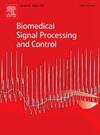卡尔曼滤波在放射治疗质量保证中的应用:日剂量质量控制的实际应用
IF 4.9
2区 医学
Q1 ENGINEERING, BIOMEDICAL
引用次数: 0
摘要
本文介绍了一种基于卡尔曼滤波(KF)的方法来加强放射治疗设备的日剂量质量控制。将辐射产生系统建模为一个由状态方程控制的动态系统。KF应用于来自Varian®Halcyon系统的30个月的日剂量质量控制(DDQC)数据,提供6 MV平坦无滤波器光束。KF的输入测量来源于太阳核®DailyQA 3探测器收集的质量控制数据。监视器单元,而不是时间,作为独立变量,评估两个迭代频率。演化模型包括监测室老化和基于大气压力的灵敏度修正,第二个模型进一步考虑了室温。KF从质量控制测量中提取额外的见解。使用双标准偏差窗口检测异常值,漂移预测可以主动安排剂量重新校准。KF输出与机器干预(如维护、重新校准和部件更换)之间存在显著相关性。演化模型的进一步改进和附加的输入测量可以提高精度。系统地收集和自动分析机器事件日志还可以增强早期问题检测,并为决策提供更健壮的框架。KF模型的轻量级和计算效率,加上它们的可扩展性,表明它们可以成为在放射治疗质量保证中建立主动的、数据驱动的范式的有价值的工具。本文章由计算机程序翻译,如有差异,请以英文原文为准。
Kalman filter in quality assurance in radiotherapy: A practical application for daily dose quality control
This study introduces a Kalman filter (KF)-based approach to enhance the daily dose quality control of radiotherapy equipment. The radiation production system is modeled as a dynamic system governed by state equations. The KF is applied to 30 months of daily dose quality control (DDQC) data from Varian® Halcyon systems delivering 6 MV flattening filter-free beams. Input measurements for the KF derive from quality control data collected with the Sun Nuclear® DailyQA 3 detector. Monitor units, rather than time, serve as the independent variable, with two iteration frequencies evaluated. The evolution model includes terms for monitor chamber aging and sensitivity corrections based on atmospheric pressure, with a second model further accounting for room temperature.
The KF extracts additional insights from the quality control measurements. Outliers are detected using a two-standard-deviation window, and drift prediction enables proactive scheduling of dose recalibrations. A significant correlation is observed between KF outputs and machine interventions, such as maintenance, recalibration, and component replacement.
Further refinements in the evolution model and the inclusion of additional input measurements could improve precision. The systematic collection and automated analysis of machine event logs could also enhance early issue detection and provide a more robust framework for decision-making. The lightweight and computationally efficient nature of KF models, combined with their scalability, suggests they could become a valuable tool for establishing a proactive, data-driven paradigm in radiotherapy quality assurance.
求助全文
通过发布文献求助,成功后即可免费获取论文全文。
去求助
来源期刊

Biomedical Signal Processing and Control
工程技术-工程:生物医学
CiteScore
9.80
自引率
13.70%
发文量
822
审稿时长
4 months
期刊介绍:
Biomedical Signal Processing and Control aims to provide a cross-disciplinary international forum for the interchange of information on research in the measurement and analysis of signals and images in clinical medicine and the biological sciences. Emphasis is placed on contributions dealing with the practical, applications-led research on the use of methods and devices in clinical diagnosis, patient monitoring and management.
Biomedical Signal Processing and Control reflects the main areas in which these methods are being used and developed at the interface of both engineering and clinical science. The scope of the journal is defined to include relevant review papers, technical notes, short communications and letters. Tutorial papers and special issues will also be published.
 求助内容:
求助内容: 应助结果提醒方式:
应助结果提醒方式:


